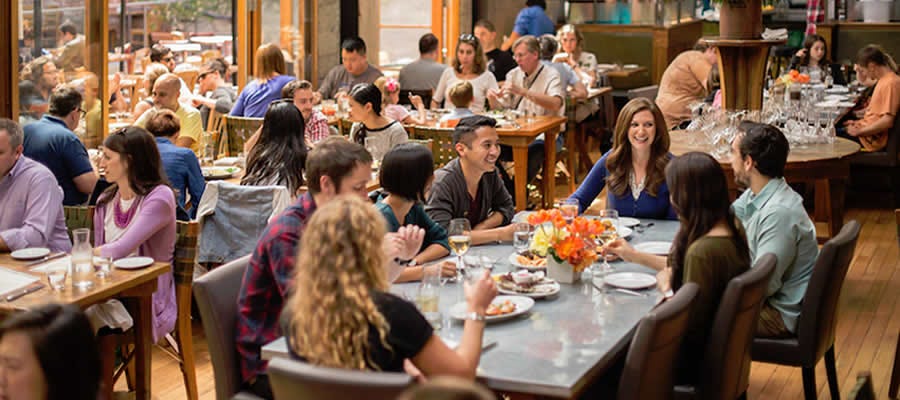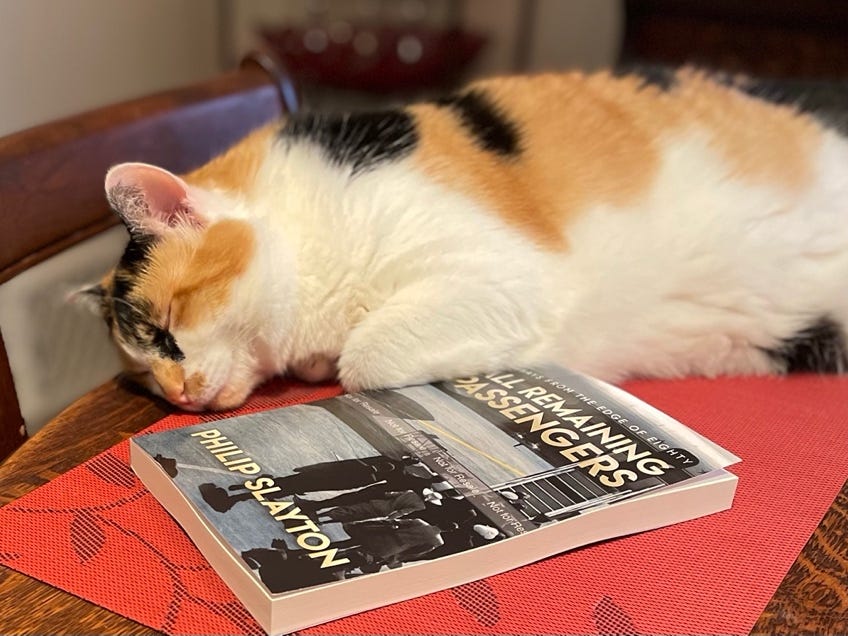The Endgame
Newsletter #110 - The sound of silence
Toronto, June 22, 2025
The sound of silence
Old people like to talk. My good friend Chat GPT explains, rather grimly, that old people value conversation because it helps them combat loneliness and isolation and preserves their identity and dignity. I’d like to point out that conversation can also be entertaining, informative, stimulating, and just plain fun.
Another characteristic of the elderly is that we dislike noise. Chat GPT, who will chat with me anytime, says that “older adults often have less patience or emotional resilience than they did when they were younger, and the irritation from loud noise can be magnified.” The bot got that right, though it doesn’t always get things right.
What happens when you combine conversation and noise? Here’s a Noise/Conversation Equation that explains it: “More noise = less conversation.” This can be symbolically expressed: “Noise↑⇒ Conversation↓” The N/C Equation is particularly apposite, and appalling, for old people.
Consider noisy restaurants. People don’t go to a restaurant to eat in silence. Part of the pleasure is conviviality. It’s okay if the people at the table next to you are talking and laughing (providing that they are not shouting or braying like donkeys). That’s part of the deal. They get to do what you get to do. You can’t resent it, or complain about it, just because you’re hungry, old and cranky. Anyway, the chatter of lively conversation can be energizing and festive. It can make you feel good. So, it’s a pity that so many restaurants have hard surfaces, e.g., stone floors and stark walls, that amplify and echo sound beyond the point of toleration. (Why is that?)
The chatter of guests in a restaurant is fine and good. What isn’t fine and good is loud music blasting from a restaurant’s sound system. This is a feature of most North American restaurants—not so much elsewhere in the world. Why do restaurateurs do this? They do it to manipulate their customers. Their main aim is to discourage conversation—the very thing that many diners went to the restaurant to enjoy. Diners who can’t talk to each other eat and drink more quickly and leave sooner, which means more customers can be served over the course of an evening, which means more revenue for the restaurant.
Another reason for blasting music in a restaurant is to influence how and what people order. Fast-paced music leads to faster eating and more impulsive orders. Loud volume causes customers to order more booze because they feel stimulated and stressed. More benignly, loud music can signal the restaurant’s desired identity, e.g., edgy or youthful.
Recently my wife and I took one of our grandsons (aged 19) to a local restaurant for an early dinner. Because of the hour, we were the only guests. The music was extraordinarily loud. I said to the person in charge, “We’re not even sitting at a table unless you turn that down.” She looked annoyed, murmured apparent consent, went behind a curtain, fiddled at something, and came back out. No change in the volume. “Okay,” I said, “We’re leaving. We’ll find somewhere else for dinner.” The staff didn’t seem sorry to see us go. I guess they thought we weren’t edgy or youthful enough.
We went to another restaurant, down the street. Again, we were the only diners at this early hour. Again, the music was loud. We asked the maître d’ to turn it down. “This isn’t a library,” he said, but, with poor grace, lowered the volume a little. Overtaken by hunger, we stayed, bolted down our steak frites, and got out.
I asked my grandson, “Why do they do this?” He had a good, but sad, answer (he’s a smart kid). “Lots of people who go to a restaurant have nothing to say to each other,” he said. “The loud music works for them. They prefer to eat in silence.”
*****
Note to readers
Here’s a picture of my daughter Gabrielle’s cat sleeping on the proof edition of All Remaining Passengers (the cat found the book boring), a slightly edited and thematically organized collection of about 70 Endgames:
All Remaining Passengers has just been published and is now available on Amazon as a paperback and e-book. I hope that soon it will be available in traditional bookstores as well.




Loud music in restaurants discourages conversation and that’s the point. Young people have nothing to say to each other. A profound statement by your 19 year old grandson. I think it also entertains bored staff.
As usual, you have crisply articulated a shared experience. However, you left out one variable in the noise-versus-signal discussion: the declining hearing of us pensioners and the limited ability of many hearing aids to sort the wheat from the chaff. Many of your reader fans likely have - or should have - hearing aids. Untreated hearing loss is a reversible risk factor for dementia. For Toronto diners, the Soundprint app has been used to rate restos in terms of decibel level https://www.soundprint.co/locations/ca/on/toronto/restaurants); Yelp, Open Table, and Reddit also provide listings of quiet restaurants. I'm looking for a place where people aren't allowed to photograph their food.